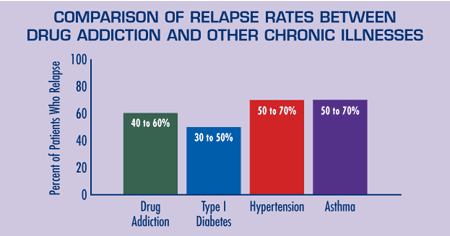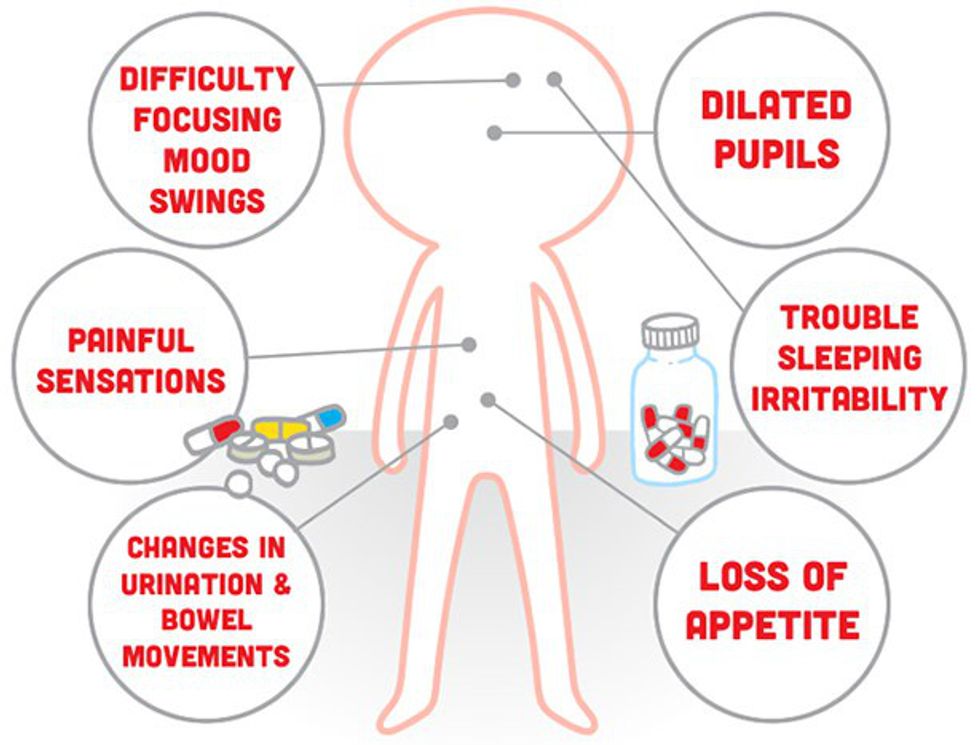This semester, I have been working on a project related to the heroin epidemic, and more specifically some treatment options for it. After doing a lot of research on the topic, I want to shed some light on what you can do if your loved one has an addiction and get the word out there more about how big of a problem drug addiction is, and how it can tear families and friendships apart. If you think your loved one has an addiction, read through these steps of what you can do to help. You never know how it could change your life.
1. Be realistic about their addiction and their treatment.
A successful treatment of addiction to drugs or alcohol is being able to maintain a stable family life, having success at work and being well thought of in your community, according to the Department of Health and Human Services. It's important to realize that even though your loved one may become completely sober after their treatment, there is always the possibility of relapse. DrugAbuse.gov says that the relapse rate for drug addiction is 40 percent to 50 percent.
2. Make sure you stay healthy.
It's natural for you to only think about how your loved one is damaging them self with their addiction, but it's important to make sure that you're continuing to stay healthy yourself. Their addiction is probably damaging you as well, causing you to stress out and lose sleep, become depressed and/or angry, a change in eating habits etc. You may think it's selfish to focus on yourself when your loved one has a life-threatening addiction, but it's important to practice self-care. Make sure you're sleeping, having a healthy diet, exercising and relaxing.
3. Realize that you alone cannot fix them.
Yes, you can talk to them and try to get them help. But one person cannot completely change someone's way of life. Ultimately, they have to want to get help and need help from professionals to turn their life around.
4. Don't become their enabler.
As hard as it is to do, it's better to get a professional to help an addict rather than letting them live in your home and try to help them get better yourself. Financing them is actually going to contribute to their self-destruction, because you don't know what they're actually going to use the money for.
5. Contact a professional to get help now —don't wait.
Don't wait to see if their symptoms get worse, get them help now. You'll get to see them as a treated, sober person much sooner if you get professional help now.
6. Read about the signs and symptoms of substance abuse.
There are so many websites that you can read about signs and symptoms of abuse, such as DrugAbuse.gov, Narconon.org and NCADD.org. You can also contact a professional at a local treatment center near you and ask them about the signs and symptoms.
7. Observe their behavior.
After figuring out the signs and symptoms of a substance abuser, watch your loved one closely if you suspect that they might have a problem. This can confirm your suspicions, and lead you one step closer to getting them help.
8. Ensure that you and your family members are safe.
Finally, make sure that you and anyone living with your loved one who is an addict are free. If there are young ones in the house, they probably should not be around someone that is an addict. This is even more of a reason to get them some professional help. Always stay safe!























